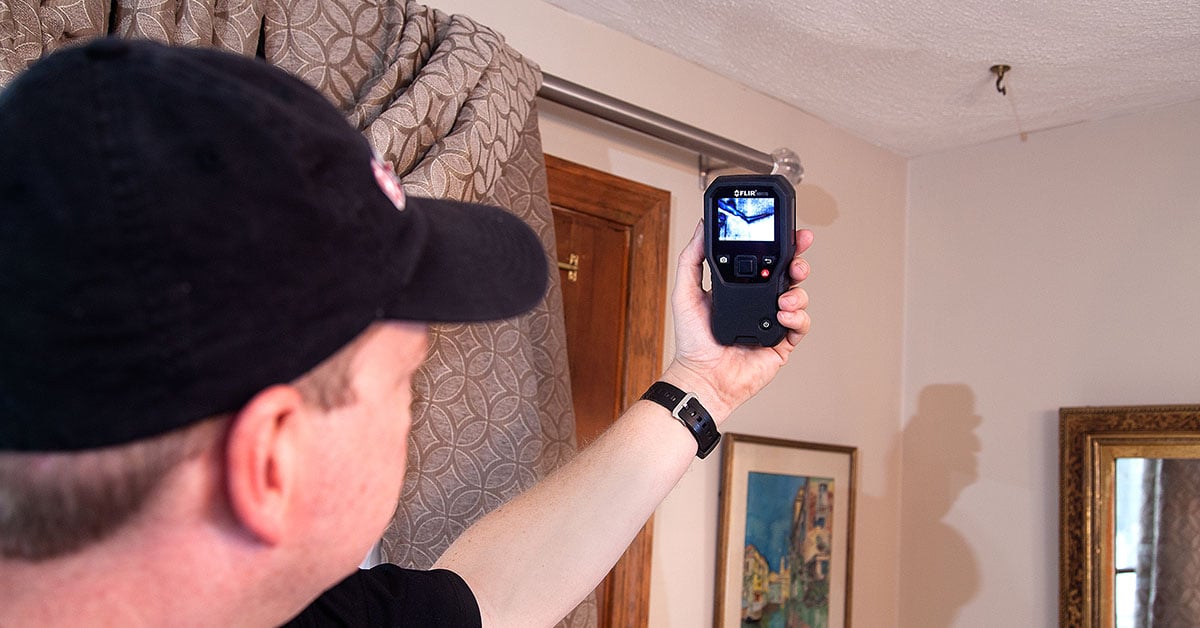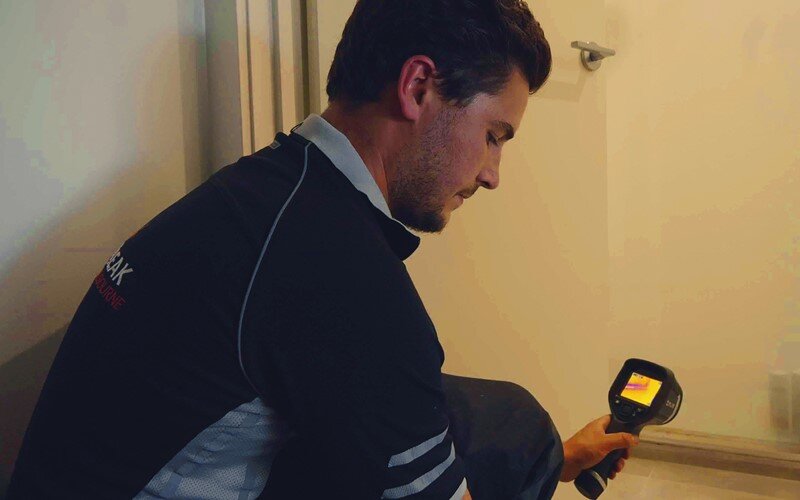Are you currently searching for help around Finding hidden leaks?

Early detection of leaking water lines can minimize a prospective disaster. Some small water leaks may not be noticeable.
1. Take A Look At the Water Meter
Every house has a water meter. Inspecting it is a surefire way that helps you uncover leakages. For starters, switch off all the water sources. Make sure no person will certainly purge, utilize the tap, shower, run the washing equipment or dish washer. From there, most likely to the meter and watch if it will certainly transform. Considering that no person is utilizing it, there must be no movements. If it moves, that suggests a fast-moving leakage. If you find no changes, wait a hr or two and also check back again. This indicates you might have a slow-moving leak that might also be below ground.
2. Check Water Intake
Evaluate your water bills as well as track your water consumption. As the one paying it, you must discover if there are any kind of inconsistencies. If you find sudden changes, regardless of your usage coinciding, it implies that you have leaks in your plumbing system. Bear in mind, your water bill must fall under the exact same array each month. An abrupt spike in your bill suggests a fast-moving leakage.
A constant rise every month, also with the very same behaviors, shows you have a sluggish leak that's likewise slowly intensifying. Call a plumber to extensively inspect your residential or commercial property, specifically if you really feel a warm location on your flooring with piping underneath.
3. Do a Food Coloring Examination
30% comes from toilets when it comes to water consumption. Test to see if they are running appropriately. Drop flecks of food color in the tank as well as wait 10 minutes. There's a leak between the container as well as bowl if the shade in some way infiltrates your bowl during that time without flushing.
4. Asses Outside Lines
Do not fail to remember to check your exterior water lines as well. Should water leak out of the connection, you have a loosened rubber gasket. One tiny leakage can squander loads of water and also spike your water costs.
5. Examine the situation as well as inspect
House owners should make it a practice to examine under the sink counters and even inside cabinets for any bad odor or mold growth. These 2 red flags suggest a leakage so prompt attention is called for. Doing routine assessments, also bi-annually, can save you from a major trouble.
If you understand your residence is already old, keep a watchful eye on your heating units, pipes, pipelines and so on. Look for discolorations as well as deteriorating as a lot of devices and also pipelines have a life expectancy. They will also naturally wear away as a result of tear as well as wear. If you think leaking water lines in your plumbing system, don't await it to intensify. Call a specialist plumber right away so you do not end up with a terrible mess in your house.
Early discovery of dripping water lines can reduce a prospective disaster. Some small water leakages might not be noticeable. Inspecting it is a guaranteed means that aids you uncover leakages. One small leak can squander heaps of water as well as increase your water expense.
If you think leaking water lines in your plumbing system, do not wait for it to rise.
How to Know If Your Home Has a Hidden Leak
Water Meter Reveals Inexplicable Water Usage
If you’d like to test whether or not there’s a leak somewhere in your home, you can do this using your water meter. Here is how to conduct the test:
Don’t use any water in your home for at least 30 minutes; this also means not turning on faucets or water-using appliances.
Go outside, and check your water meter for activity.
If your water meter shows that there was activity, even though no one was using any water, this proves that there is a leak in your home.Visible Mold or Mildew Growth
Leaks behind walls create moist, dark environments that allow mold and mildew to grow and thrive. Eventually, you might see mold growth forming on the wall closest to a hidden leak.
If mold is growing in an area that receives a high amount of moisture, such as a bathroom, it may simply be an indication that better ventilation is needed. However, if you see mold growth on a wall or the ceiling in an area where you would not expect, you probably have a hidden leak.
Musty, Mildew Odor
Sometimes you might not be able to see the mold or mildew that is growing as a result of a leak. However, the smell can give the problem away just as easily. If you catch a whiff of something musty, there’s a good chance that old water is collecting somewhere in your home that you can’t see.
Stained/Warped Walls, Ceilings, or Floors
When your home soaks up water, a variety of red flags can become visible, including ceiling stains, bubbling drywall, warped walls, and sagging floors. While these issues can be caused by excess humidity, they can also be signs that a pipe or plumbing connection has started leaking behind your walls.
Inexplicably High Water Bill
After a while, you get a general sense for what your water bill should be. If you own a pool or sprinkler system, your bill will tend to be higher during summer. However, if you receive a water bill that seems especially high, and you can’t figure out what caused it, then you may have a hidden leak somewhere that’s increasing your bill.
https://www.plumbingjoint.com/blog/2019/july/how-to-know-if-your-home-has-a-hidden-leak/

I stumbled upon that page about Locating water leaks while doing a search on the internet. Are you aware of anybody else who is inquisitive about the niche? Feel free to share it. We value reading our article about Leaking water lines.